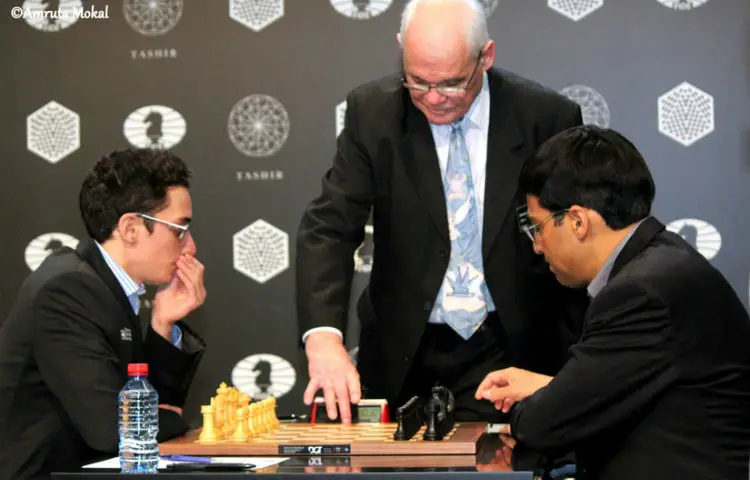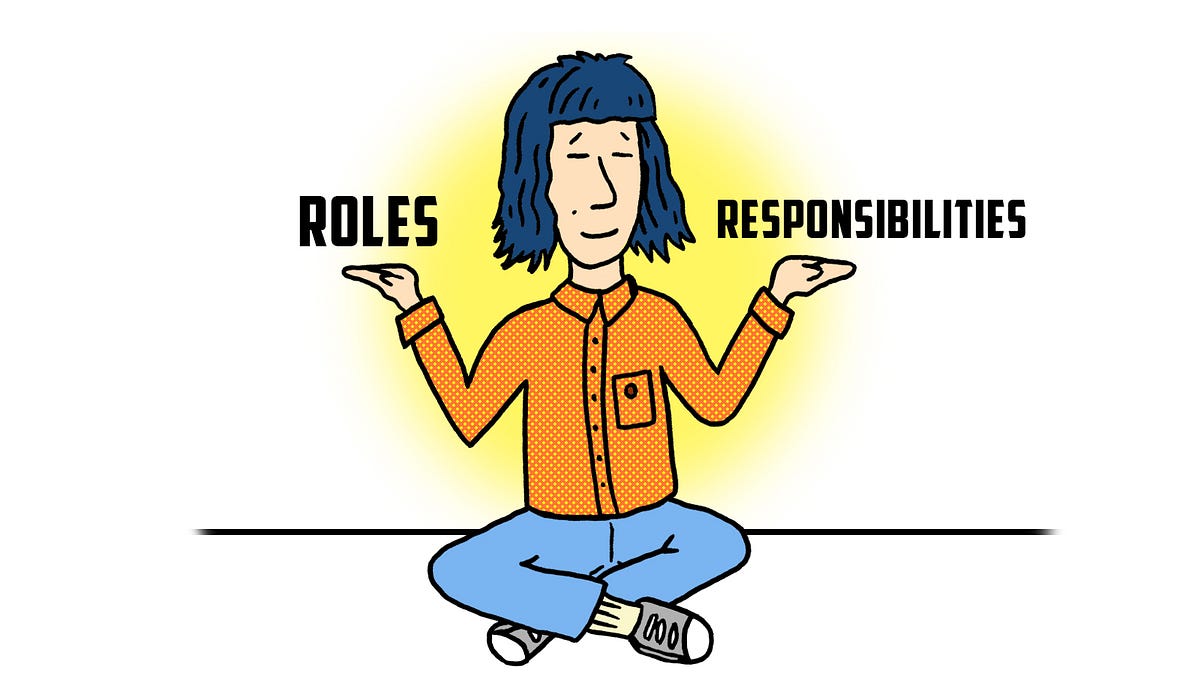To begin with, International Arbiter in Chess is a title awarded in an important chess match by FIDE to individuals who are considered capable of acting as an arbiter. Moreover, The arbitrators ensure compliance with the rules and laws of chess. This role is fairly recent, having been established since 1951. Catch a chess arbiter in action from the World Rapid 2019, here!
Given the above, chess arbiters aren’t exactly well known. However, we have dug out this tiny but important bit of information for you. We will look at the role of Chess arbiters in this article through the following headings:-
Jump to Section
- Who is a chess arbiter?
- What are the duties of an arbiter?
- What does the cheif arbiter do?
- The roles of Arbiters?
- Qualifications Required To Be An Arbiter
Who Is A Chess Arbiter?

Every game needs a referee so that none of the players would to cheat in the game. This is why, a chess arbiter is required. The chess arbiter controls and regulates the match. Furthermore, he/she has in-depth knowledge and experience of the game and its rules. One calls arbiters in national/international level matches or events. To summarize, an arbiter has many duties.
What are the Duties of a Chess Arbiter?

1. Before the start of the game
- An arbiter should be present at the game at least 30 minutes before. It’s advisable to arrive at least one hour before the start of the first round of the tournament. The Chief Arbiter can request the presence of the Arbitrators even earlier in very significant events.
- Checks of the game equipment (chessboards, pieces, score sheets, pens) are conducted.
- Before the player or the audience arrives, the arbiter checks the entire play-site of the game (playing room, toilets, smoking area, test room, bar). They also check the technical conditions (light, ventilation and air-conditioning).
- The chess arbiters check the tables, chairs, ropes for the playing area, table numbers, name plates for the players and flags of federations, if needed.
- Examining the correct setting of time in the clock , checking the power of the batteries and placement of the clock.
- It is very important for team players that they follow the basic rules of the competition before starting the game and that the conditions on board are confirmed.
2. During the game
- Noting the unplayed games (if players didn’t arrive on time for their games and have to be forfeited) and inform the Chief Arbiter accordingly.
- Reviewing the electronic clock by means of time sheets, scoresheets and the number of movements written (within thirty minutes, or as directed by the Chief Arbiter).
- Observing all the games , especially when there is any time trouble with the help of an assistant , if required
- Carefully check the claims made by the players with the chief arbiter , if needed.
- Once the game is over, both players check the recorded results and see if they have signed the score sheets.
- Updating the results sheet by recording the result of every finished game.
At the end of the Game
- The chess arbiters carefully check the results of all of the matches by counter-checking the score sheets and the outcome sheets and/or the protocols of the matches (in team events).
- The arrangement of all chess boards and the other equipment (pieces, score sheets, pens, clocks) should be ready for the next round.
What does the Chief Arbiter do?

- The Chief Arbiter fully monitors the competition and proper application of Chess Laws and the Regulations of the Tournament. They shall be responsible for all technical issues and shall ensure the players operate in the best conditions. A chess arbiter must manage and assign the tasks and responsibilities to existing arbitrators.
- They are responsible for the smooth running of the competition . A chess arbiter is responsible for taking the final decision (subject to appeal) in every case or incident during the games.
- A Chief Arbiter has to try to settle all arising disputes before they are forwarded to the Appeal Committee.
- The Chief Arbiter submits a report to the organizing body in due course after the competition has ended (FIDE, Continental Federations, National Federation, etc.).
Roles of Arbiters:
- An arbiter must ensure fair play
- Act in the best interest of the competition
- Ensure the maintenance of a good playing environment
- Supervise the progress of the competition
- Take special measures in the interests of disabled players and those who need medical attention
- Award time to a player, if needed
Requirements For Being An International Arbiter
- Thorough knowledge of laws of chess, the FIDE Regulations for chess competitions, the Swiss Pairing Systems, the FIDE Regulations regarding achievement of title norms and the FIDE Rating System.
- Absolute objectivity, demonstrated at all times during their activity as an arbiter.
- Obligatory knowledge of English language, minimum at conversation level; and of chess terms in other official FIDE languages.
- Minimum skills at user level to work on a personal computer. Knowledge of pairing programs endorsed by the FIDE, Word, Excel and E-mail.
- The title of the International Arbiter for each of the IBCA, ICCD, IPCA shall each be equivalent to one IA norm.
- Being a match arbiter in an Olympiad is equivalent to one IA norm. No more than one such norm will be considered for the title.
- The title of International Arbiter can be awarded only to applicants who have already been awarded the title of FIDE Arbiter.
- All the norms for the IA title must be different from the norms already used for the FA title and must have been achieved after the FA title has been awarded.
- At least two (2) of the submitted norms shall be signed by different Chief Arbiters.
Discover More!
Therefore, the role of a chess arbiter is an important part of the game. Such a role helps in maintaining the true decorum and spirit of chess. Podium School endeavors to bring you more information on various aspects of chess including gameplay, different tactics like the French Defense, the Sicilian Defense, etc. and also the advantages of learning the game.
Thus, we welcome you to this world of kings, queens, bishops and knights. Podium hopes that you give us a chance to be your guide to chess. Do explore our chess classes and sign up for a free trial with our experienced faculty!

